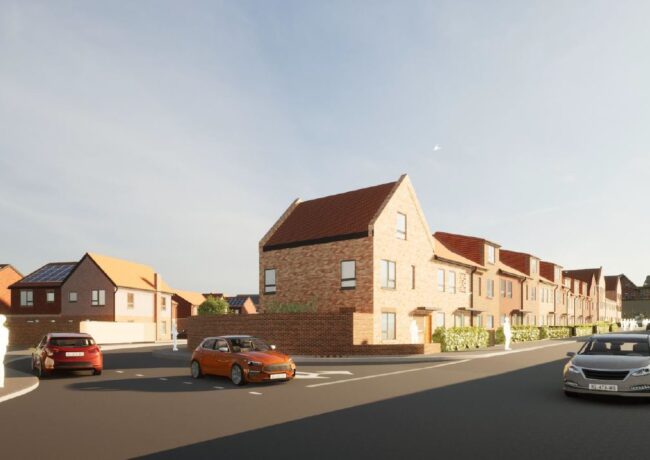RESOURCES | Room service: funding hotel developments
As hotel operators explore increasingly diverse and innovative methods of funding new schemes, commercial property partner, Alex McCann examines the property law implications of this specialist sector, writes Alex McCann of Hill Dickinson.
Traditional structures
A hotel operated by the freehold owner, possibly with traditional mortgage finance, is straightforward and uncomplicated from a property law perspective. Provided there are no restrictive covenants on the freehold title limiting the development or use of the property as a hotel and the landowner has the necessary planning permission and licences, the landowner has complete freedom over the hotel operation.
Where the hotel operator is taking a lease of the hotel premises, the lease negotiation will resemble commercial lease negotiations in any other sector. Careful consideration should, however, be given to the lease clauses concerning user, alterations and especially alienation, to ensure that the lease allows sufficient flexibility in the event that some future date the operator wishes to embrace one of the alternative structures discussed below.
Whilst such simple ownership structures have not disappeared altogether from the hotel sector, they are largely confined to small independent operators, such as traditional family-run seaside hotels. Changes to business models, combined with difficulties raising traditional funding, have required innovative solutions. Most large hotel chains, and the majority of significant new hotel developments, now adopt far more complicated structures which differentiate the hotel sector from other property classes.
Management agreements
Popular for a number of years, management agreements allow a hotel chain to operate a hotel without actually owning any interest in the underlying hotel premises. The agreement regulates the rights and obligations of the parties, covering everything from repairs and improvements to the hiring and firing of staff and the all-important calculation and division of profit.
Although not intended to create any interest in the property, it is important that the management agreement is considered by the property lawyers. Not only will it deal with the use and management of the property, but it is easy to inadvertently create a landlord and tenant relationship between landowner and occupier, since the law looks at the substance of the arrangement rather than the label placed on it by the parties.
The creation of a lease can be dangerous for both parties. The landowner does not wish the hotel operator to acquire statutory security of tenure and renewal rights as a business tenant. Furthermore, if the landowner is itself a leaseholder rather than freeholder, their own lease may prohibit the grant of further leases, or at least require the superior landlord’s consent.
For the hotel operator, the creation of a legal estate in the property may give rise to unwanted liabilities, starting with the obligations to pay Stamp Duty Land Tax on the lease and to register it at the Land Registry.
Even where all parties are confident that the management agreement does not constitute a lease, consideration still needs to be given as to whether it offends any restrictions in the landowner’s headlease on sharing occupation or possession of the property.
Hotel room investment
Another solution to the development funding conundrum is the phenomenon of hotel room investment. A concept which arrived from the United States in the early years of the new century, hotel room investment involves investors purchasing long leases of individual hotel rooms, which are then leased back to the operator so they can then be used as part of the hotel.
In addition to an expectation of capital growth, investors can usually expect to receive a percentage of revenue from ‘their’ room, and maybe free use of the room for a certain number of nights each year.
Whilst generally only minimal negotiation of the leases of the individual rooms will be permitted, these leases will need to deal with complicated issues such as rights over common parts and what happens if the hotel closes. The leases will also be subject to Stamp Duty Land Tax and will need to be registered at the Land Registry. If the developer only holds a leasehold interest in the property, the subletting provisions of the developer’s headlease will need to be examined carefully to ensure that the proposed scheme is permitted.
Unlike a traditional new-build property purchase, where the buyer pays a modest deposit on exchange of contracts and only pays the bulk of the purchase price when completion takes place following completion if the building, a typical hotel room investment scheme requires the buyer to pay at least half of the purchase price up front.
Widely touted in the years leading up to the recession as a viable alternative to investment in traditional buy-to-let property, interest among UK investors has waned due to the risk of paying substantial sums before receiving a lease, together with problems financing such a purchase and an uncertain resale market.
However, the appetite for this sort of property investment continues unabated among wealthy overseas investors and we have been involved in several new hotels funded entirely this way.
It is apparent from the above that hotel development has broken away from traditional property ownership structures, perhaps moreso than any other sector. It is therefore imperative that anyone thinking of becoming involved in the hotel sector- whether as developer, operator or investor- retains an open mind as to how a scheme should be structured and funded, and that they take advice from professionals with experience of this increasingly specialist sector.
This article was originally published through Place Resources



